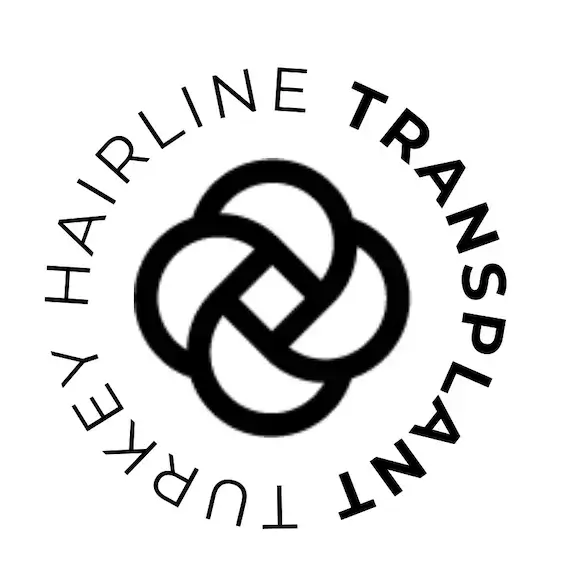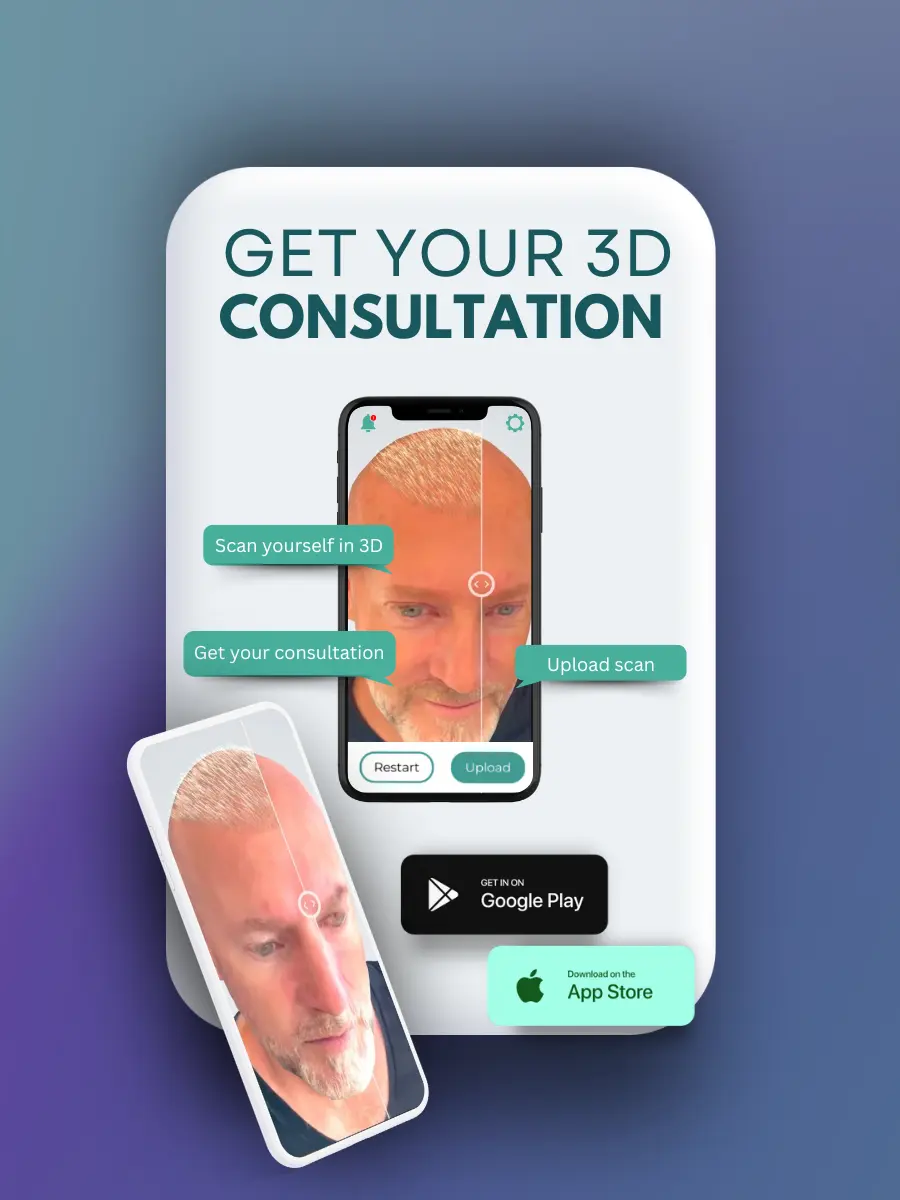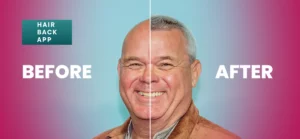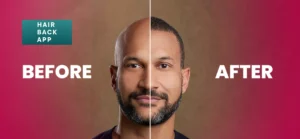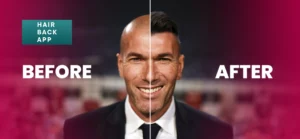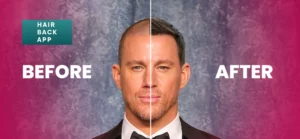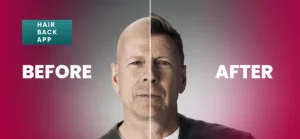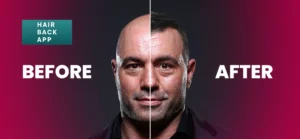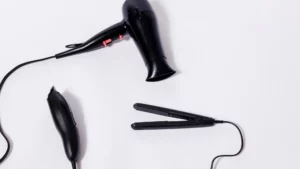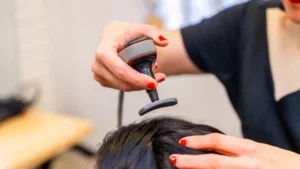Have you ever run your fingers through your hair and felt a sinking dread as strands slipped through, seemingly more than usual? It’s a moment that many of us have experienced, and while it’s easy to tag your shock loss to hereditary hair loss, or stress, there’s another player in the game – your diet.
Yes, the food you eat every day has a profound impact on the health of your hair, influencing everything from its strength and thickness to its overall appearance. It’s a connection that’s often overlooked but holds significant importance in the quest for luscious locks.
My name is Emma Wright, your resident hair loss and restoration specialist. In this article, we’re going to shine a spotlight on this lesser-known aspect of dietary impact: the foods that may be sabotaging your efforts to maintain a full and healthy head of hair.
Just as your body needs a balanced diet to function optimally, so too does your hair require proper nourishment to thrive. And unfortunately, not all foods are created equal when it comes to promoting hair health. In fact, some may even be working against you, silently contributing to hair loss and thinning without you even realizing it.
By understanding the relationship between your diet and your hair, you can take proactive steps to protect and nurture your locks from the inside out.
Top 4 Foods That Are Responsible For Your Hair Loss
The thoughts that come with hair loss are mainly about what you put on your hair. It’s not just about what you put on your hair, but what you put into your body that can impact its growth and strength.
Before we delve into the specifics, let’s take a moment to introduce some of the common dietary culprits that have been linked to hair loss. From the sugars hiding in your favorite snacks to the fats sizzling in your skillet, these foods may be silently sabotaging your efforts to maintain a full and healthy head of hair.
So, as we explore each of these potential adversaries in greater detail, keep in mind how they might be influencing your hair health. By understanding the role that diet plays in hair loss, you can take proactive steps to nourish your hair from the inside out and promote a vibrant, and resilient hair.

Here are the major foods that can cause you to go bald in no time if you decide not to watch what you eat.
1. Refined Sugar and High-Glycemic Foods
When it comes to the health of your hair, what you consume can have a profound impact, and refined sugar and high-glycemic foods are among the top offenders. These dietary culprits not only wreak havoc on your waistline but also on your hair follicles, potentially leading to thinning and shedding.
But how exactly do these seemingly innocent treats contribute to hair loss? It all comes down to their effect on your body’s internal environment. When you consume foods high in refined sugar or with a high glycemic index – think sugary snacks, sodas, and processed carbohydrates like white bread and pastries – your blood sugar levels spike rapidly. This sudden surge triggers a cascade of hormonal changes, including an increase in insulin production.
Insulin, in turn, can lead to inflammation throughout the body, including the scalp, which can disrupt the hair growth cycle. Additionally, high insulin levels can interfere with the production of other hormones that are essential for healthy hair, such as DHT (dihydrotestosterone), which plays a role in regulating hair follicle activity.
Furthermore, the inflammation caused by high-glycemic foods can damage hair follicles, making them more susceptible to miniaturization and eventual hair loss. Over time, repeated consumption of these foods can contribute to chronic inflammation, exacerbating the problem and leading to more significant hair thinning or shedding.
So, if you’re struggling with hair loss or noticing an increase in shedding, it may be worth taking a closer look at your diet. Consider cutting back on sugary treats and refined carbohydrates and opting for whole, nutrient-rich foods instead. Not only will this benefit your waistline and overall health, but it may also help to support the growth and vitality of your hair.
2. Trans Fats and Processed
In the modern diet, trans fats and processed foods have become all too common, lurking in everything from fast food to packaged snacks. While these convenient options may satisfy your taste buds in the short term, they can wreak havoc on your hair health in the long run.
Trans fats, also known as partially hydrogenated oils, are artificially created fats that are commonly found in processed and fried foods. These fats not only contribute to weight gain and heart disease but also have a detrimental effect on your hair follicles. When consumed regularly, trans fats can disrupt hormone regulation, leading to imbalances that can contribute to hair thinning and loss.
Processed foods, in general, can also have a negative impact on your hair health. Many processed foods are high in refined carbohydrates, sugars, and artificial additives, all of which can contribute to inflammation and oxidative stress throughout the body, including the scalp.
To protect your hair health, it’s essential to minimize your consumption of trans fats and processed foods and focus on whole, nutrient-rich options instead. Choose lean proteins, fruits, vegetables, whole grains, and healthy fats like avocados and nuts to nourish your body and support optimal hair growth.
3. Excessive Vitamin A Intake
While vitamin A is an essential nutrient for overall health, it’s possible to have too much of a good thing when it comes to this powerful vitamin. In fact, excessive intake of vitamin A (either through supplements or certain foods) can have adverse effects on your hair follicles and contribute to hair loss.
Vitamin A plays a crucial role in cell growth and differentiation, including the cells that make up your hair follicles. However, when consumed in excess, vitamin A can become toxic to the body, leading to a condition known as hypervitaminosis A. One of the symptoms of hypervitaminosis A is hair loss, as the toxic levels of vitamin A can disrupt the normal hair growth cycle and lead to increased shedding.
The question remains, at what point does Vitamin A become excessive and detrimental to your health?
The recommended daily intake of vitamin A for adults is 700-900 micrograms (mcg) per day, depending on age and gender. However, it’s important to note that this includes both preformed vitamin A, found in animal products like liver and fortified dairy products, and provitamin A carotenoids, found in fruits and vegetables like carrots and sweet potatoes.
For most people, it’s unlikely that they’ll consume too much vitamin A through diet alone. However, for those who take vitamin A supplements or consume large amounts of animal products high in preformed vitamin A, there is a risk of exceeding the recommended intake and experiencing adverse effects.
If you’re concerned about your vitamin A intake and its potential impact on your hair health, it’s essential to speak with a healthcare professional. They can help you determine whether you’re getting the right amount of vitamin A and offer guidance on adjusting your diet or supplement regimen if necessary.
4. High-Mercury Fish
Fish is often touted as a healthy protein source, rich in omega-3 fatty acids and essential nutrients that support overall health, including the health of your hair. However, not all fish are created equal, and some species may contain high levels of mercury, a toxic heavy metal that can pose risks to your health, including your hair health.
Mercury is a naturally occurring element that can find its way into waterways through industrial pollution and other human activities. Once in the water, mercury accumulates in the tissues of fish, especially large predatory species that are higher up the food chain.
These fish can accumulate significant levels of mercury over time, posing risks to those who consume them regularly.
When it comes to hair health, mercury can interfere with the normal functioning of hair follicles and contribute to hair loss and thinning. Additionally, mercury toxicity can disrupt the production of hormones that are essential for healthy hair growth, further exacerbating the problem.
Some of the fish species that are known to contain high levels of mercury include swordfish, shark, king mackerel, and tilefish. While these fish are generally best avoided or consumed in moderation, it’s essential to note that not all seafood is off-limits.
Many other types of fish, such as salmon, trout, and sardines, are low in mercury and provide valuable nutrients that support hair health, including omega-3 fatty acids and protein.
If you enjoy eating fish and want to include it as part of a healthy diet, consider opting for low-mercury options and limiting your consumption of high-mercury varieties.
Final Thoughts
Your dietary choices wield significant causes of hair loss, affecting its strength, thickness, and overall appearance. Throughout this exploration, we’ve uncovered how refined sugars, trans fats, excessive vitamin A, and high-mercury fish contribute to hair loss. By grasping these culprits and their effects, you can proactively stop your hair loss and nurture vibrant, resilient hair.
Moving forward, prioritize a balanced, nutritious diet rich in whole foods: lean proteins, fruits, vegetables, whole grains, and healthy fats. These nutrient-dense options provide essential vitamins, minerals, and antioxidants, combating dietary inflammation and toxicity that harm hair health.
In conclusion, holistic well-being encompasses dietary choices and lifestyle factors like stress management and exercise. By adopting this comprehensive approach, you nurture your hair from within, ensuring a future graced with radiant, confident strands.
